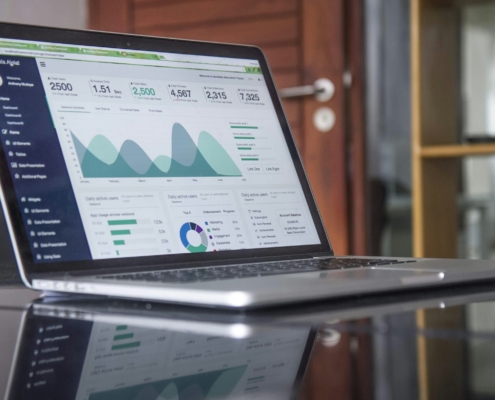Relationship Between SEO and Social Media
Table of Contents
Relationship Between SEO and Social Media
High on your digital marketing list is bound to be improving your website’s SEe and boosting your search rankings. Together these are bound to bring high-quality search traffic to your website.
SEO strategies have many components that work together to achieve one goal – to boost your rankings. However, when you lack an understanding of what is needed to tie everything together, your efforts can leave you focussing on the wrong actions.
In this piece, we, specialists in SEO, will discuss social media’s contribution to improving your ranking.
How Does Search Engine Ranking for Websites Work?
First, we need to discuss how search engines work. Whatever your choice – Google, Edge, Bing or Yahoo you can expect:
- A web crawler goes from site to site looking for data
- The data is indexed in the database of the search engine
- A query is typed into the search engine bar
- Which then delivers a list of websites arranged based on the ranking factors of the search engine
Search engines have a ranking factor applied when evaluating a webpage, then decide which order they appear. Some of these factors include:
- Page loading speed
- Existing traffic
- Relevancy of content – e.g. keyword usage
- Mobile-friendliness
- User website behaviour – e.g. bounce rate
- Quality of backlinks
- Metadata etc.
Essentially, the crawler brings back all the data it can find, which is then reviewed by search engines. This then determines the top listings on the SERP and who is best left to further pages.
SEO and Social Media
Why do brands focus on social media content when it’s not a ranking factor? The answer is reasonably straightforward, your social media efforts can still influence your SEO which we will discover below:
- Traffic
Adding traffic to your website is often achieved through a presence on social media. Traffic is a ranking factor, so integrating links and directing users to your landing pages is a way forward.
Facebook and Twitter are great ways to engage with users for SEO purposes. This is why social media is included in marketing strategies.
- Content Reach
While users are exposed to relevant content in their search queries, it’s a little different when it comes to social media sites.
On social media, users can stumble across content that they may not otherwise have sought out. So, using your social media to share blog posts or other website content means that it has the potential for users that wouldn’t otherwise engage with your site to do so.
Additionally, users often share your posts on their accounts which reaches others. Sometimes influencers or profiles with large followings also share, which translates to even more quality traffic.
- Profiles Ranking Well
Your social media profile isn’t limited to the platform and gets a link that can rank in search engine pages. These are most often featured in brand search results.
When a user searches you by name, this is called a branded search. If someone types your brand name into a search engine, they will receive relevant links to your website and social media pages. This allows them to get a better sense of your brand.
Due to this, your visibility is increased in search engines and drives more high-quality traffic to your website.
- Improving Local SEO efforts
Perhaps the biggest priority of all is local SEO. If you want to tap into your local audience, social media is ideal for it.
Ranking well in local searches in search engines requires them to know you’re a legitimate business. This is why it needs information like a physical address and contact number.
Social media enables you to share this information to look more credible for search engines and helps improve local search ranking results.
- Social Signal Boosting
All the shares, likes, views and other metrics on Facebook, Twitter, Instagram and YouTube are social signals. Search engines use the signals to verify business legitimacy, and it also shows how active, dynamic and fresh your content is.
- Social Media is Technically a Search Engine
Social media platforms are structures to find just about anything they need on their social media accounts.
Their search functionalities allow users the flexibility to discover your page, content and posts. For Example, Facebook has a marketplace where people can buy goods and services in their area.
Leveraging Social Media for SEO
For a brand to reach its goals, strategies can be used to combine SEO and social media. Your SEO strategy needs to be aligned with your plan for social media, and you can do that by:
- Focussing on variable content – Giving users relevant, quality content by meeting their needs and expectations.
- Using a posting strategy: Different social media platforms have different rules for the perfect plan to reach people. For Example, Twitter users respond well to several tweets a day, however on Facebook, you shouldn’t exceed two a day. Developing a strategy can ensure these aren’t exceeded.
- Leveraging social media platforms – Free to use, you should set up accounts for multiple platforms. Your audience will be spread over different forms of social media, and using more than one option will increase the possibility of driving traffic to your website.
- Completing your profile – Make sure you add as much information as possible to your profile because users want to know who you or your company are. Achieve this by adding to your profile:
-
- Website links
- Your logo
- Brand name
- Location
- Description
- And so much more
- Use resources wisely – It’s good to use multiple sources but don’t overextend yourself. If you aren’t producing quality Instagram posts and stories, stick with posting on Facebook and Twitter.
Move Your Business Forward
Looking to add a social media marketing strategy and improving your SEO efforts? Our team is ready to help your business make the most of your social media account and release its full potential. Ask us how we can work with you.







